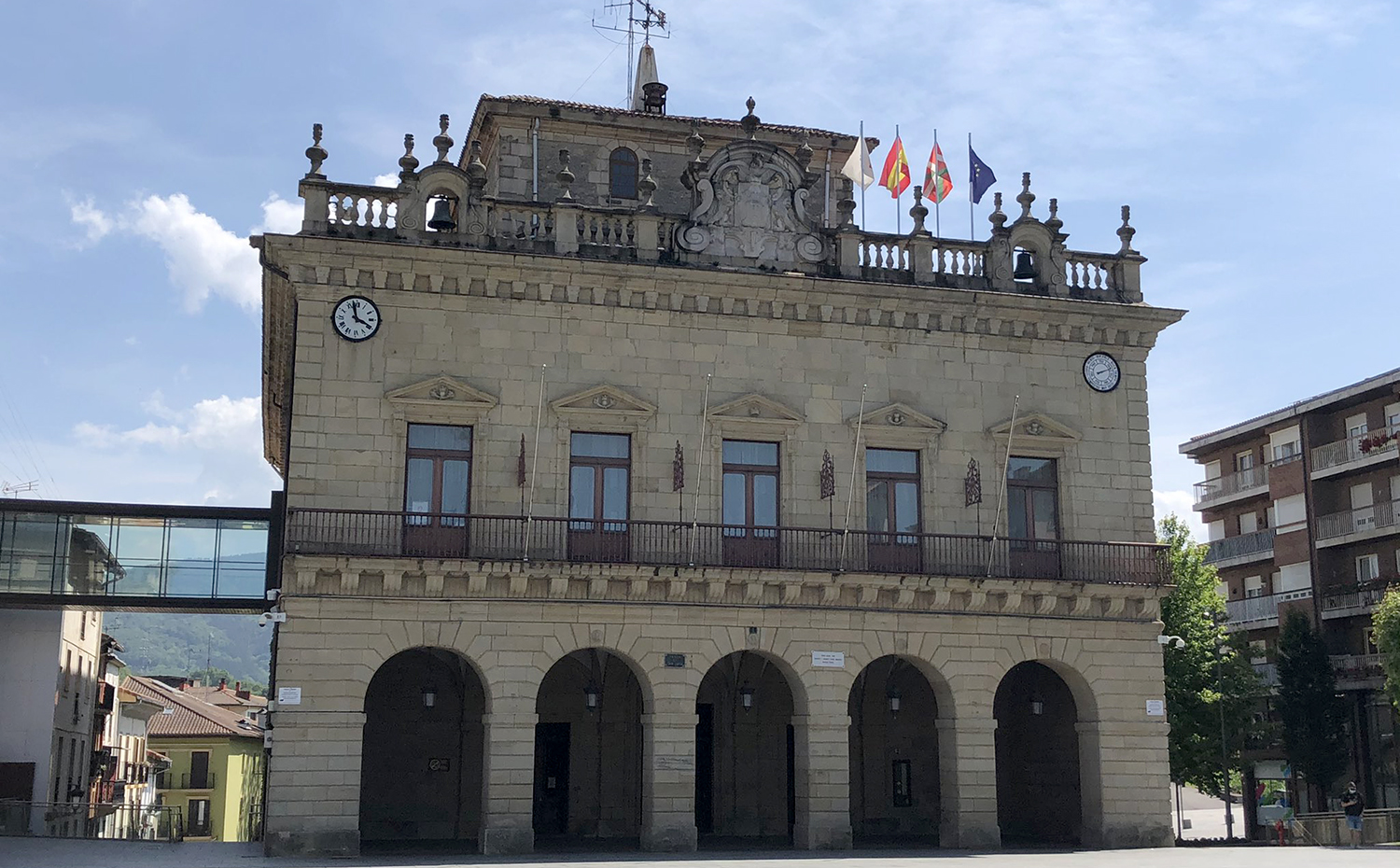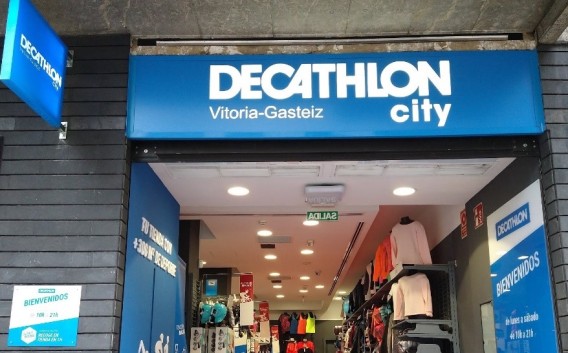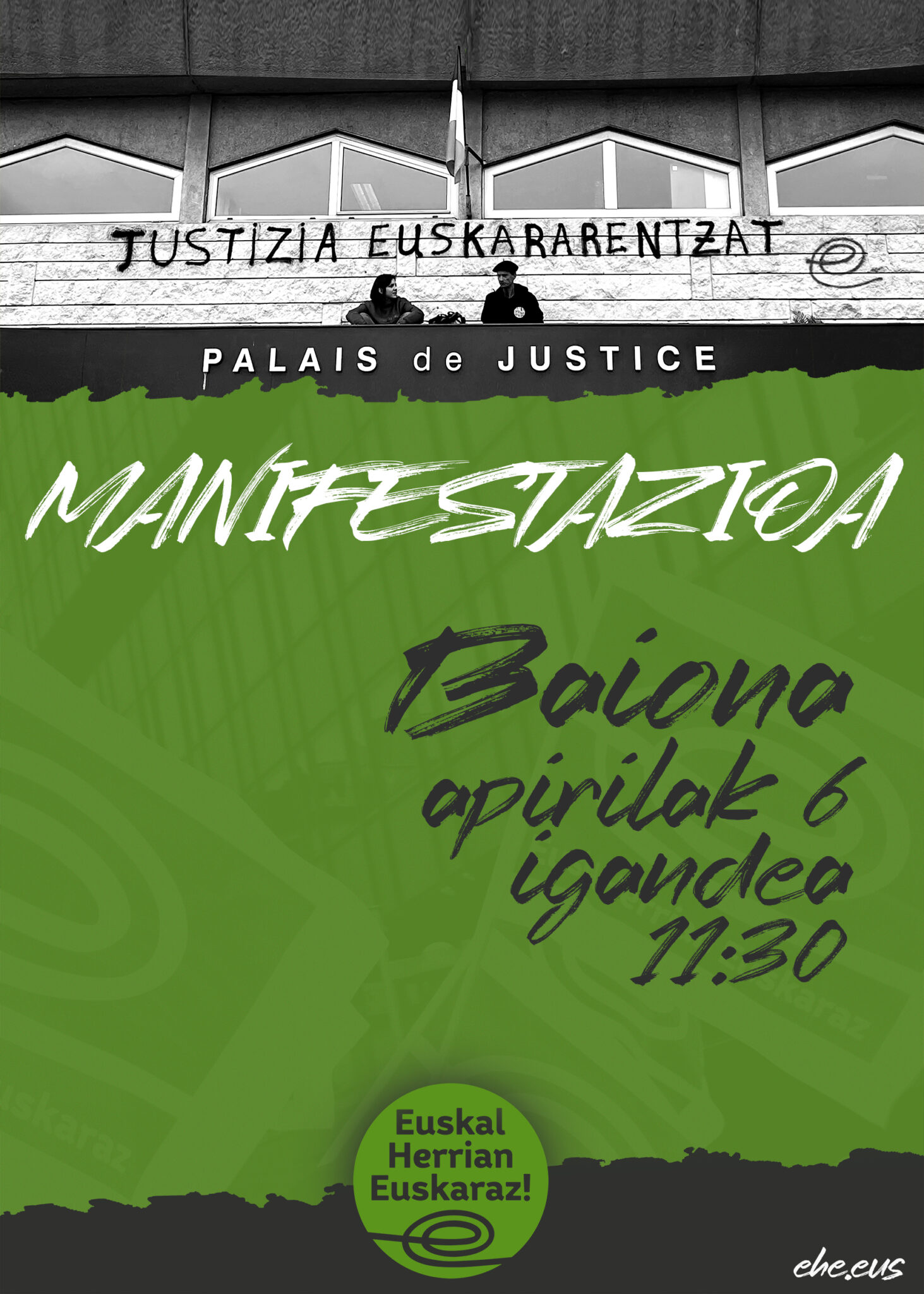What is a year later
- On 17 December it is a year since several agents presented the Protocol for the Guarantee of Linguistic Rights in Donostia. The Council Secretary-General, Paul Bilbao, said that now is the time to implement the protocol through the pleadings.
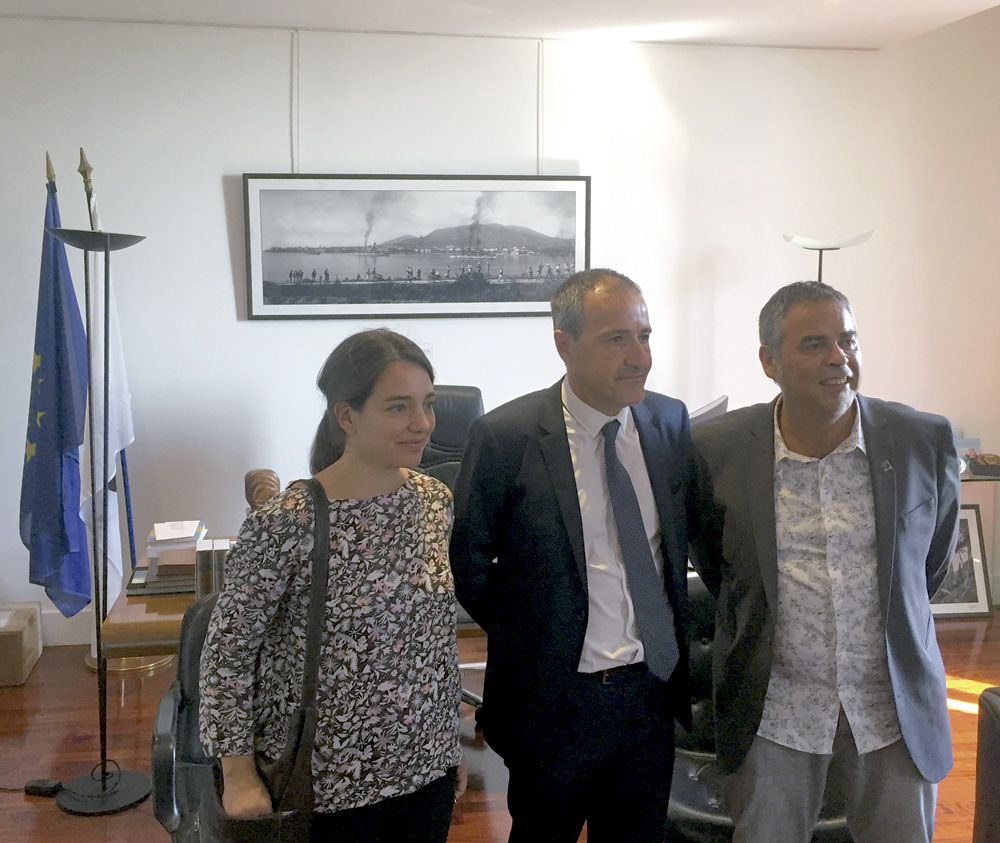
Council Secretary-General Paul Bilbao recently has a clear agenda. He has just returned from Corsica, with a journey linked to the Protocol for the Guarantee of Linguistic Rights. Over the past year, Bilbao has taken numerous aircraft with the aim of deepening the agreement reached in December last year. Since the end of the European Cultural Capitality Donostia 2016, the Council is the main agent to ensure that the roadmap outlined by the protocol is being complied with.
Bilbao believes that the project has had a considerable impact in the first nine months. In his view, “the protocol is opening its way”, and an example of this is the fact that he received a call to some Summer Courses in Germany: “That proves there is interest.” They have created a network among the actors who will shortly send a newsletter to the other protocol promoters to explain the steps to be taken and encouraged by the other LING participants – the European Language Equality Network.
One of the next steps is the legitimization of protocols in international organizations. They aim at three organisations: The UN, the Council of Europe and the European Security Cooperation Organisation (ESLA). At the UN, for example, they want to make a presentation before the end of the year. At the Council of Europe in Strasbourg in February, they met with the Community Executive and had contacts with different committees.
Another objective that has been set for the future is the recognition of the protocol by local institutions, especially parliaments. In this way, several meetings have been held with the institutions here and there. In the Basque Country, the Council met with the presidents of the Basque and Navarro parliaments; in Corsica and Galicia they met with authorities and agents. It is precisely the President of the Corsican Assembly, Jean-Guy Talamoni, who valued the draft and expressed his intention to present the protocol in Parliament. At the meetings held in Catalonia, CIEMEN and Linguapax participated, and Bilbao stated that the Generalitat will "bring much closer" the Protocol on Linguistic Rights.
The Secretary-General of the Council has considered that the main strengths of the protocol are its values and its value. Among them, he highlighted coexistence and democratization: “We have highlighted the mismanagement of linguistic diversity. Most of the clashes in Europe have not taken place between states, but have taken place within the state. Language is at the center, and language is power, also economic. When it is known that someone who knows another language has a better job or has more facilities to learn, there are clashes within the state.” That is why the Council member says that he believes in equal opportunities between linguistic communities and that if they were to be guaranteed many conflicts would be avoided. In his view, we must seek equality of opportunity between languages, and international organisations have a great deal to say.
The Protocol for the Guarantee of Linguistic Rights also considered it a challenge to extend the network of its own: “In fact, our intention is not so much quantitative as it is qualitative. At least in the project we wanted an agent to represent each language. There have been very few minority languages abroad in Europe. Once this has been achieved, we will ask these organizations to multiply to form a denser network in their languages.”
Kaiera, an important tool
As an extension of the protocol, the signatories shall be directed to the pier. Bilbao considers an important instrument: “There are over a hundred agents in the area. It may not have binding value, but one must consider a tool that represents, directly or indirectly, millions of speakers.”
The kaiera is a roadmap that each community of speakers prepares to make the protocol viable in its own language: “The situation of each language is different, as well as the institutional spiders of each place. Therefore, the measures contained therein will be addressed by each one according to their environment.” The ultimate objective is to comply with the 185 measures established by the Protocol for the Guarantee of Linguistic Rights. Each shall do so at its own pace and the intermediate steps may be taken into account: “Because the rhythm is different, it won’t always fill up suddenly, because all casuistic people are different. For example, in the Principality of Catalonia they have more than 80% of the measures implemented, and in other places they do not have a quarter”.
A study is carried out to work the papers, then local agents say how far they want to go in five years and how far they want to go in ten years: “Some will be interested in training teachers, as in the case of Frisón, and others, working cinema in their own language.” The preparation of notebooks in some parts of the Basque geography has already begun. Among other things, they have taken their first steps in Aragon and Corsica, as in other countries.
This is the edition this year of the Notebook of the University of Euskera. In the words of Bilbao, “for us the kaiera is a challenge and in 2017 we have made a great investment to prepare it. We get in touch with the signatories and we are collecting opinions from areas”. They are also aware in the Council that in the case of the Basque Country the situation is special because of the administrative division.
In spite of this, Bilbao believes that the national perspective must be worked out. It will be a single language, but if each of the 185 measures puts which institution it belongs to, in the case of the Basque Country, three administrations will in many cases be referred to. The rhythms will also be marked by those who know the realities of each people: “We will say what the roadmap is, but then each one will work in its field, also by sectors.” He has set the media as an example.
Municipalities play a special role in this process due to the major changes that occur: “The realities of Getxo and Azpeitia are different.” There is nothing to say about the three administrative areas of the Basque Country. According to Bilbao, the members of the CAV and Navarra are working more on praxis, and many of the measures will apply to the Basque Government or the Government of Spain, which are the ones with competence. On the other hand, in Ipar Euskal Herria, all regulations are in the hands of the French State, and the houses of the people can promote them. All such cases should be taken into account when drawing up the documents. The main objective is to comply with the 185 measures guaranteeing linguistic rights.
Europako hizkuntza eskubideak bermatzeko bitartekoa da. Hizkuntza gutxituetako 200 eragileren eskutik 185 neurri zehaztu ziren. Neurri horiek hartuko balira hizkuntza eskubideak errespetatuko lirateke. 2016ko abenduan aurkeztutako protokoloaz informazio gehiago: Donostiako Protokoloa: Badator hizkuntza eskubideen alde borrokatzeko tresna berria
Don't make a fuss, don't confront, don't victimize... and obey. As oppressed subjects, in this case as Basques, we talk, how many times have we had to listen to them? Ironically, two years ago, at the Euskalale Independentiston Meeting, Esne Arzallus said: "We have arrived here,... [+]
Euskal Herrian Euskarazek manifestazioa deitu du apirilaren 6rako, 11n EHEko bi kide epaituko dituztelako. Hiriburuetatik autobusak antolatzen ari dira. Bi helburu bete nahi dituzte, batetik, epaituak izango diren bi kideei babesa erakustea, eta bestetik, euskararentzat justizia... [+]
ELA sindikatuak azaldu duenez, azken Lan Eskaintza Publikoaren oinarrien arabera, Ertzaintzarako eskainitako lanpostuen %20ak eta Udaltzaingoaren %30ak ez daukate euskara-eskakizunik. Gasteizen, adibidez, udaltzain-lanpostuen erdietan, 24tan, ez dago euskara-eskakizunik.
Ba al dakizue frantses batzuk harritu egiten direla mugaren alde honetan ere euskaldunak bagaudela jakitean? Ba bai, harrigarria bada ere, behin, Donostian, frantses batzuei entzun nien sinetsi ezinik beren buruari galdetzen: “Saint-Sébastien est au Pays... [+]
"No entiendo, en castellano por favor" eta gisakoak ohikoak dira eskolako guraso Whatsapp taldeetan, baina Irungo Txingudi ikastola publikoan euskara hutsean aritzeko modu erraz eta eraginkorra dute, behar duenarentzat itzulpen sistema berehalakoa ahalbidetuta.
Gabonetako argiak pizteko ekitaldia espainolez egin izanak, Irungo euskaldunak haserretzeaz harago, Aski Da! mugimendua abiatu zuen: herriko 40 elkarteren indarrak batuta, Irungo udal gobernuarekin bildu dira orain, alkatea eta Euskara zinegotzia tarteko, herriko eragileak... [+]









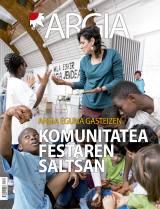

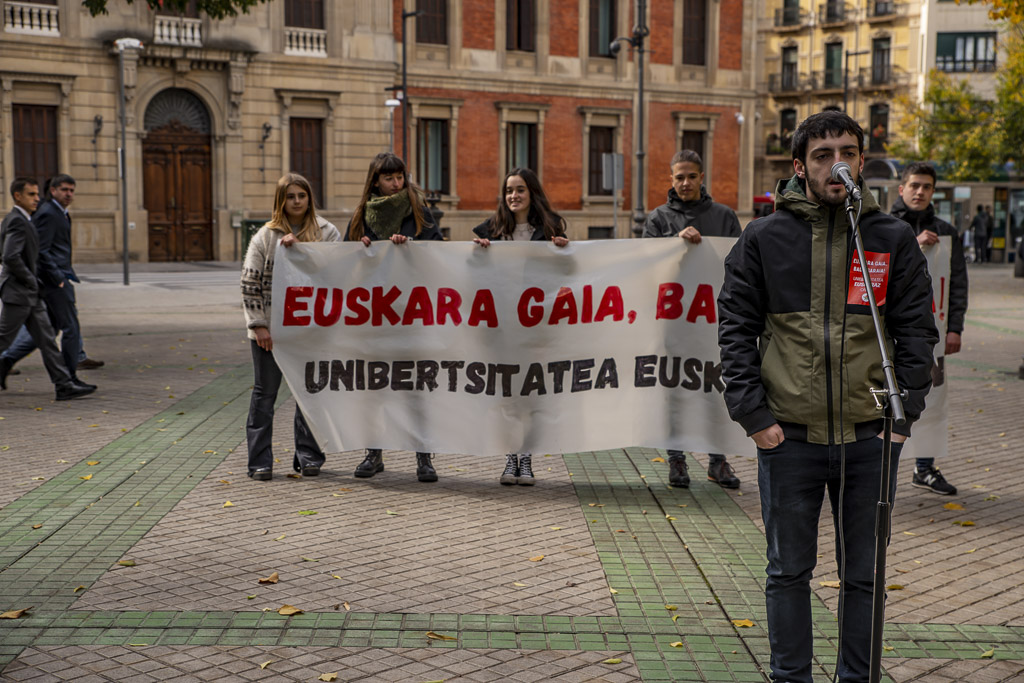
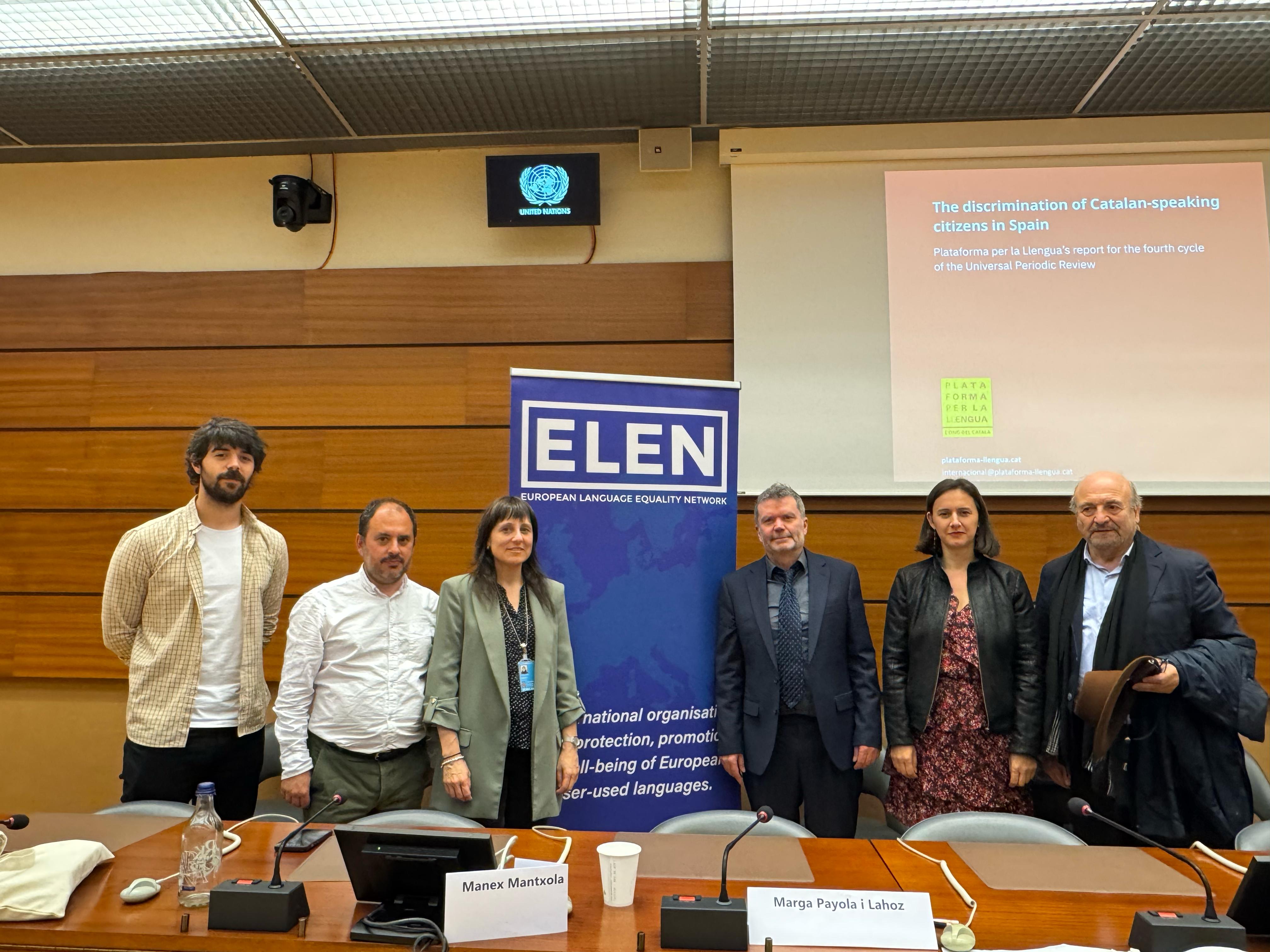




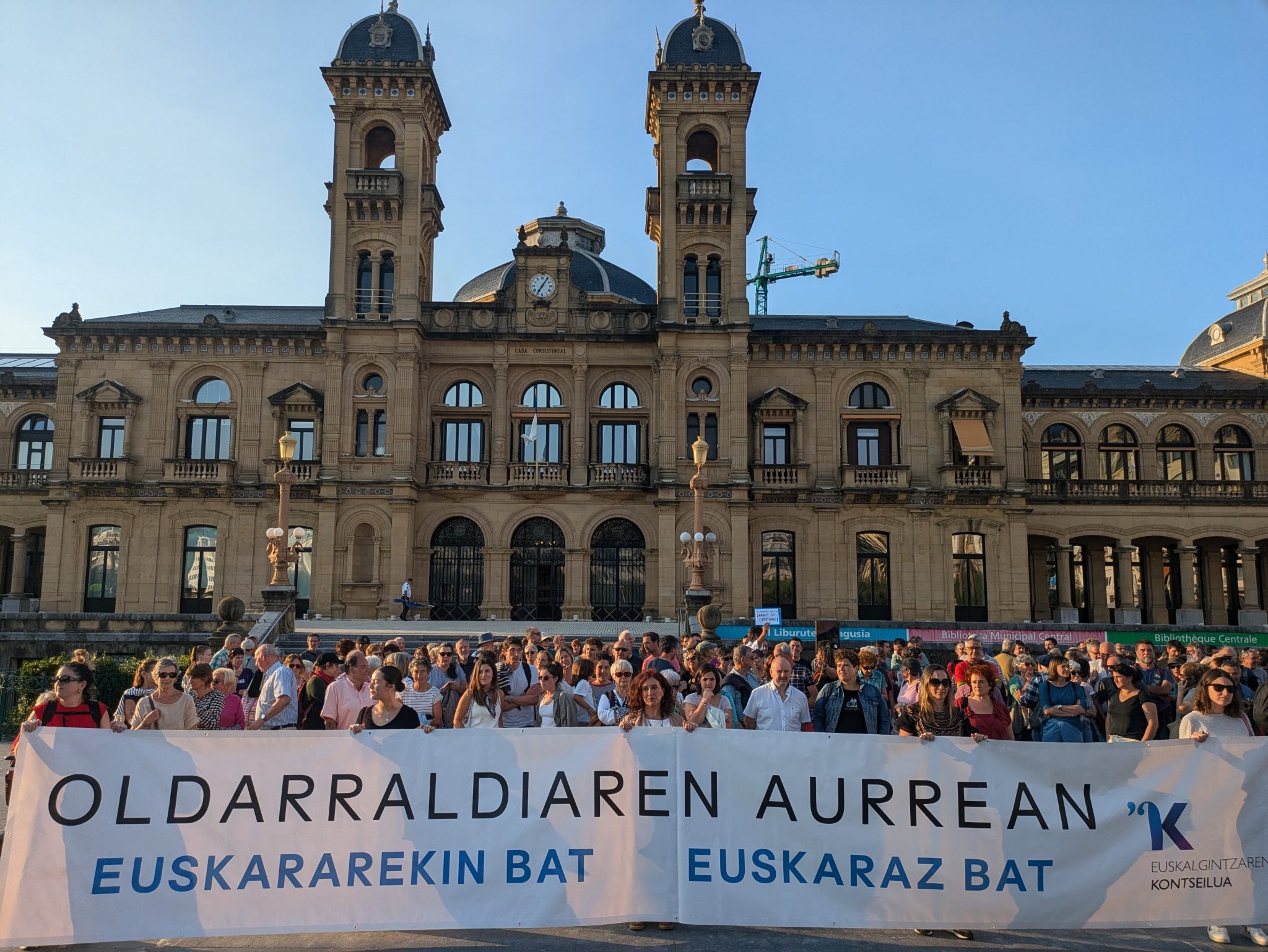

.jpg)
